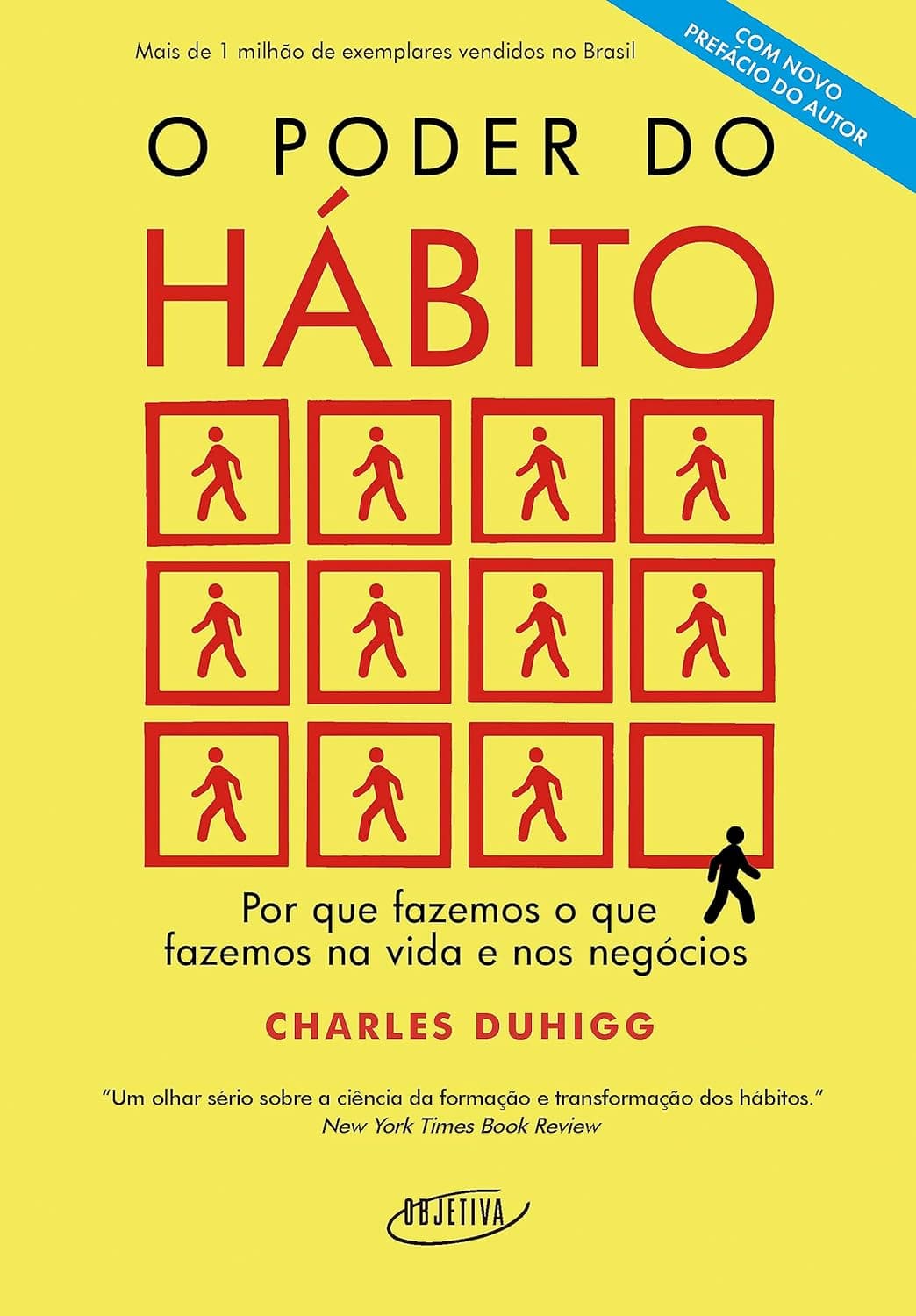The Power of Habit

The Power of Habit, written by Charles Duhigg, explores the science behind habits and how they form. The book discusses how habits operate on an individual, organizational, and societal level. One of the main insights is that habits consist of a "loop" with three parts: the cue, the routine, and the reward.

Duhigg explains how Pepsodent created the habit of using toothpaste by adding a freshness reward after its use.
He also analyzes the case of Angie Bachmann who went bankrupt and blamed casinos for having created and fueled a habit she considered impossible to change:
- Angie Bachmann was a housewife, with a working husband and three daughters who spent the day at school or with friends. Feeling empty, she started gambling at a casino. She won and lost. She identified triggers like seeing a betting spot or having money in her pocket, but couldn't resist them and kept betting even after losing everything. Her compulsion in search of the pleasure of gambling was stronger than her conscious will to change.
In addition to the case of Brian Thomas who was acquitted because they considered that he had no control over his actions.
- A lifelong sleepwalker, Brian Thomas woke up one night and saw a man attacking his wife. To defend her, he fought and squeezed the stranger's neck until he was still. Only then did Thomas realize it wasn't an intruder he was holding, but Christine, his wife. When he released her, she was already dead. Desperate, he called the police telling everything.
Despite its complexity, all habits can be modified. People with severe addictions manage to recover. Dysfunctional companies can transform.
The book analyzes examples of individuals who managed to change their habits to improve their lives, as well as companies and organizations that restructured the habits of their employees and customers. Some examples:
-
Dysfunctional companies that reshape their cultures and habits, like Alcoa under Paul O'Neill's leadership, which established new safety habits that eventually made the company more profitable because they focused on safety habits that led to efficiency and ultimately profitability.
-
Alcoholics who manage to stop drinking through support groups like AA (Alcoholics Anonymous). They identify the triggers that lead them to drink and create new routines and rewards, like drinking juice instead of alcohol or calling a support buddy.
-
Students who drop out of school but learn new study habits and manage to finish their education, like Lisa Allen's case. She identified that watching TV was the trigger for procrastinating, so she removed the TV from her room and created a new routine of studying at the same time every day.
-
Athletes or artists who overcome mental or creative blocks by identifying the fears and anxieties that were sabotaging them. By isolating those triggers, they were able to create routines to calm the mind and achieve better performance.
-
People who eliminate bad eating habits by replacing rewards like the momentary pleasure of eating sweets with rewards like satisfaction with their body and health in the long run.
To change a habit, you need to consciously decide to change it, identify the triggers and rewards that drive it, and find alternatives.
Change takes time and effort, but any habit can be reshaped by following the steps: identify the routine, experiment with rewards, isolate the trigger, and have a plan.
Overall, The Power of Habit offers valuable insights into how to understand and harness the power of habits to make positive changes, both on a personal and organizational level. Duhigg relates these ideas in an engaging way, using stories and examples to make the topic more accessible.
“Some thinkers,” Aristotle wrote in the Nicomachean Ethics, “hold that it is by nature that people become good, others that it is by habit, and others that it is by instruction.” To Aristotle, habits reigned supreme. The behaviors that occur without thinking are evidence of our truest nature, he said. So “just as a piece of land has to be prepared beforehand if it is to nourish the seed, so the mind of the pupil has to be prepared in its habits if it is to enjoy and dislike the right things.”


